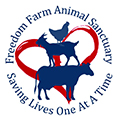Introduction
As consumers, we often enjoy the soft warmth of wool and the delightful taste of lamb dishes, but little do we realize the hidden price paid by farmed sheep. Behind the picturesque farms lie a dark and distressing reality – the systemic abuse and mistreatment of these gentle creatures. In this blog, we will shed light on the harrowing plight of farmed sheep, revealing the suffering they endure in the pursuit of commercial gain.
Confinement and Overcrowding
One of the most distressing aspects of factory farming is the cruel confinement and overcrowding of sheep. These sentient animals are often kept in cramped spaces, with no room to roam or express natural behaviors. The stress from overcrowding leads to a weakened immune system, making them more susceptible to diseases and infections.
Mulesing
Mulesing is a painful practice that involves cutting away strips of skin from the sheep’s rear to prevent flystrike, a condition caused by flies laying eggs in the folds of their skin. This practice is carried out without anesthesia and leaves the sheep in excruciating pain. Despite efforts to find alternative methods, this cruel procedure continues to be used in some regions.
Lack of Proper Veterinary Care
In pursuit of maximizing profits, many industrial farms often neglect providing proper veterinary care to the sheep. Injuries, illnesses, and infections are left untreated, resulting in needless suffering and prolonged agony for the animals.
Stressful Shearing Practices
Shearing, essential for harvesting wool, is often done hastily, with little regard for the welfare of the sheep. The process can be traumatic, causing injuries and cuts to their sensitive skin. Some shearers prioritize speed over the sheep’s well-being, resulting in careless handling and added stress.
Transport Conditions
Transportation is another area where farmed sheep face extreme abuse. Long and arduous journeys to slaughterhouses are common, during which sheep are packed tightly in trucks without sufficient ventilation, food, or water. The exhaustion, dehydration, and fear experienced during transportation add to their already miserable lives.
Slaughterhouse Cruelty
The horror does not end at the farm; it escalates at the slaughterhouse. Sheep are subjected to cruel and inhumane practices, often without proper stunning or slaughter methods. Some animals are conscious during the slaughtering process, further amplifying their suffering.
Conclusion
The abuse farmed sheep face is a tragedy that must not be overlooked. As consumers, we hold the power to demand change. By supporting ethical and sustainable farming practices, we can promote a future where sheep are treated with respect, compassion, and dignity.
Consider opting for products that carry the “cruelty-free” or “ethically sourced” label, which ensures that the sheep were treated humanely throughout their lives. Encourage and support local farmers who prioritize the welfare of their animals. Together, we can advocate for stronger animal welfare regulations and put an end to the silent suffering of farmed sheep. Let us stand as the voice for those who cannot speak for themselves and create a world where all animals are treated with kindness and love.
Lisa M. Miskella
Executive Director
Freedom Farm Animal Sanctuary
www.freedomfarmanimalsanctuary.org
